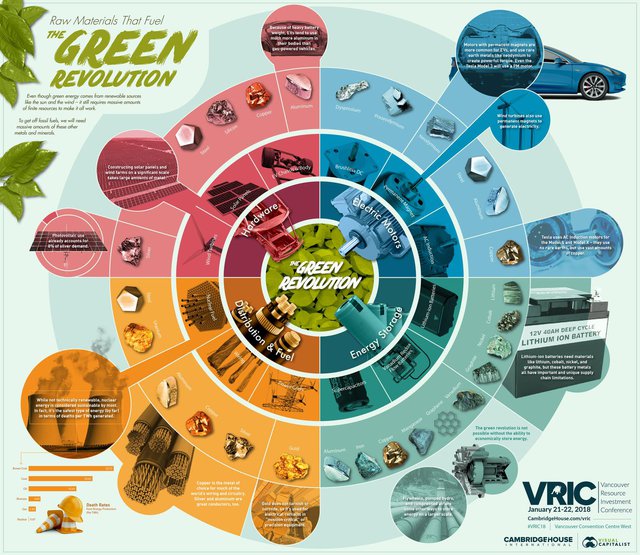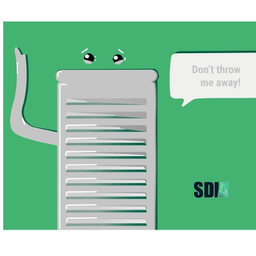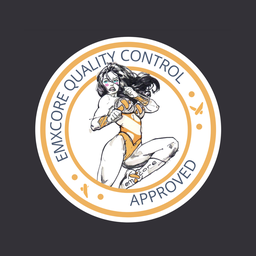The RIPE community can contribute to a more sustainable Internet in multiple ways, but one of the most immediate and impactful among these involves decisions regarding buying hardware and sourcing services. We take a closer look at the issues surrounding procurement, the resources available, and explore ways we can work together to create guidelines relevant to the RIPE community.
Earlier this summer, I wrote about how the endeavour to “green” the Internet cannot happen without the RIPE community. The goal of that post was not merely to share knowledge, but also help empower the community with concrete recommendations of actions you can take and highlight how sustainability is a criterion that consumers increasingly care about. Of these, one stands out as a wealth of untapped potential that many within the RIPE community may not even realise they have: the power of procurement.
Why it’s important
The importance of responsible procurement of devices, software, services, and more cannot be overstated. It is central to achieving the goal of more sustainable production and consumption, and is intrinsically connected to not just environmental sustainability but also promoting greater human, labour, and environmental rights – specifically within the context of Internet development. From holding supply chains accountable for how device components are mined (and by whom), to changing the fact that the computer and mobile phone industry is one of the most susceptible to conflict and slave labour, the challenges facing the sector are vast. Endeavours such as promoting a new circular economic vision for electronics and monitoring electronic waste (e-waste) dumping in some of the most vulnerable and impoverished communities around the world aim to remedy these problems. However, we also need to do our part. Ultimately, we have a responsibility to know how our devices are made, hold suppliers accountable, incentivise more sustainable production throughout the supply chain, and choose products and services that respect labour rights without contributing to worsening inequality, exploiting children and marginalised individuals, environmental degradation, and climate change.
Given its relevance to the RIPE community, we would like to investigate this further. Our motivation for pursuing this is not to guilt or alienate anyone. On the contrary, it’s solely to help make community members more aware of how they can take certain human rights, labour, and environmental standards into consideration when buying new equipment or acquiring services, while also exploring the idea of offering a practical procurement guide with pertinent resources for the RIPE community. An additional hope for us is that such an endeavour can help bring in new voices to further invigorate the wider community, particularly among young professionals who are working to integrate climate action and sustainability throughout their work.
What guidelines already exist?
Much of our aims stem not only from the genuine desire for a more sustainable Internet, but also because there is no definitive guide or a straightforward, one-size-fits-all resource on responsible and sustainable procurement for the ICT sector. In my experience, most companies or organisations follow their own guidance or take an independent approach – if any exists at all. One exception that is worth noting is the Purchasers Guide for Addressing Labor and Human Rights Impacts in IT Procurements from the U.S.-based Global Electronics Council (GEC). It provides a concise, easy-to-use guide that facilitates the following:
- Better understand the IT sector’s capacity to address labour and human rights impacts;
- Introduce labour and human rights-related performance criteria in technical specifications, supplier selection, and procurement award criteria, as well as in contract performance clauses;
- Provide purchasers with supplier labour and human rights performance data to confirm that purchasers are meeting their internal responsible sourcing and sustainable procurement goals when monitoring and evaluating the results of procurements; and
- Assist purchasers in assuring that labour and human rights regulatory requirements are met.
It offers a number of suggestions, investigative questions, and critical frameworks for companies to engage in due diligence, specifically by helping to achieve specific metrics ranging from developing and communicating measurable labour and human rights expectations for suppliers as well as performing more robust supplier risk screening, to assessing responsible sourcing practices and the impacts from raw material extraction.
It is a wonderful first-stop resource, and it is currently in the process of being updated (for transparency’s sake, I’m volunteering on one of their revision consultation working groups). What is missing, though, are more granular recommendations and specific suggestions for network operators, software developers, IXP managers, and similar groups within the RIPE community. Moreover, and by no fault of its own, it’s meant to be succinct. As such, our idea is not to create a comprehensive and duplicate resource, but one that instead complements this guide by focusing on the context and specific needs of the RIPE community.

Source: Visual Capitalist
Other notable procurement and sustainability resources
Aside from the GEC guide, there are myriad resources that are worth noting for both operators as well as developers relating to hardware and software. For instance, Scotland is developing a set of procurement guidance, which only adds to the work that the European Commission has done to boost green public procurement as well as bridging gaps between work on improving the circularity of ICT products and addressing social issues in their supply chains such as human rights abuses.
Elsewhere, The Green Web Foundation offers a number of relevant recommendations for how to make web hosting and development more sustainable, and the Principles.Green initiative seeks to provide better guidance on building and running digital services in an effort to minimise their total environmental impact. The U.K.-based procurement analysis and consulting firm Spendnetwork is also working to assess the estimated carbon emissions associated with IT projects over the lifetime of a contract based on cost and kind of services rendered. If anything, these demonstrate clearly why infusing sustainability principles and guidelines into both procurement and development are so important (many thanks to Chris Adams for sharing these).
Industry bodies are responding as well. The Global e-Sustainability Initiative (GeSI) and the Responsible Business Alliance’s (RBA) Responsible Minerals Initiative are two examples, the latter of which counts more than 380 member companies from a range of industries addressing responsible mineral sourcing issues in their supply chains. And while it is undoubtedly pushing for greater oversight, bear in mind that membership is not an automatic panacea. For example, an independent survey of electronics and car manufacturers by Amnesty International in 2017 found major blind spots in supply chains of some of the Initiative’s biggest members, specifically as it relates to conflict mineral mining and the use of child labour. This shows how important it is to stay diligent and aware of the problems, while also recognising the need for consistent supply chain transparency, accountability, and oversight.
Call to action
If there’s one thing you take away from this post, I hope it’s the fact that you can do something about the problems outlined above. As I said, do not underestimate the kind of power you hold as network operators and others who are engaged in procurement and development. After all, we vote with our money. The good news is that the same power extends to you. Of course, awareness and education is the first step. This is particularly true for larger companies and operators that regularly or semi-regularly make significant purchases. In case small- and medium-sized companies feel less influential in this sense, one action to take is to band together in solidarity to practice a zero-tolerance policy and help generate more leverage so that you can pressure suppliers to heed calls for more sustainable products and accountable supply chains. Especially as we work to realise a more sustainable recovery from the ongoing COVID-19 crisis, we should prioritise these kinds of purchases going forward, and encourage suppliers to respond accordingly.
Where do we go from here?
As a next step, we would like to organise a BoF or submit a presentation at RIPE 81 to gather interest from the RIPE community. Based on that discussion and the feedback received, we could then explore the idea of writing a document with more practical guidelines for operators (similar to ripe-554 for IPv6) with members of the RIPE community. This could then also include or refer to any regulations that already exist that are relevant to Europe and the wider RIPE service region, for instance, as well as best practices and case studies collected from across the community.
In case you’d be interested in getting involved, please reach out to us or leave a comment below. And remember something I echo over and over: sustainability is not just good for human rights and the planet, it’s good for business.





Comments 4
The comments section is closed for articles published more than a year ago. If you'd like to inform us of any issues, please contact us.
Michael Richardson •
Thank you for this. I think that one of the key things to reducing e-waste is to keep devices in productive use longer. The smartphone cycle is largely being driven by planned obsolescence through lack of software updates. While few of us here are in the smartphone business, we see the same thing with CPE devices. No software updates means poor security, which pushes for replacement of the devices. More capable devices can sustain more updates, but cost more up-front, and there still very little relationship between price paid and number of years of supported software updates. At least, I believe this anecdotally. It would be nice if we had survey data to prove or disprove this belief. Perhaps RIPE along with some of the entities you mentioned might be able to do a confidential survey of ISPs in order to summarise the results? EN 303 645 and upcoming UK legislation requires that the support time for devices to be made clear at point of purchase. See https://www.iotsecurityfoundation.org/keep-software-updated/ for many references. (Yes, I'm the presenter for the webinar, the first of which was August 28) While the nic.cz Turris system is well supported, and very capable, it does not seem have had a lot of influence on big ISP purchasing. What kind of software support lifespans are ISPs able to contract? While many RIPE clueful people know about, deploy and contribute to openwrt, it does not seem to show up in a supported way in devices that I see either big or small ISPs deploying. The big ones don't seem to care. The small ones can't afford to take a risk. Years ago, it was the common that an ISP would buy some 12-port switching device for it's core, and two years later (when it was too slow), would migrate it from the core to an access aggregator, and then two years later, it might find a few more years service as internal lab equipment, or being used for a multi-tenant CPE. I learnt this as a switch (chip) designer. Is this still a thing? In my more recent (2014-era) hands-on ISP experience, this was no longer a thing, because the devices had all become far too specialized. Maybe SDN is changing this? Are there best practices in making purchase decisions that support this migration of equipment? {I'm reminded of: https://www.youtube.com/watch?v=NQjHJKNyoUE }
Michael Oghia •
Thank you so much for this thoughtful and, frankly, on point comment Michael. This is also exactly why I encourage the RIPE community to take a more explicit stance on the Right to Repair in Europe.
Michael Oghia •
We received another comment from J. Scott Marcus on the Connect-WG list that I'd like to add here for both posterity's sake, but also to highlight the importance of seeing this issue as a holistic one (i.e., there is no single solution or panacea). It's a 2020 study Scott authored for the IMCO Committee of the European Parliament titled: “Promoting product longevity: How can the EU product safety and compliance framework help promote product durability and tackle planned obsolescence, foster the production of more sustainable products, and achieve more transparent supply chains for consumers?” View at: https://bit.ly/2Z1LEEG
Michael Oghia •
As an example of a European telecommunications/computing company that includes a commitment to human rights is Nokia. I just came across their human rights page, which addresses issues ranging from labour rights to supply chain transparency, and think they may be a good knowledge base for us to draw from. More information is available at: https://www.nokia.com/about-us/sustainability/conducting-our-business-with-integrity/human-rights/?1 They also just launched a podcast covering these issues as well: https://www.nokia.com/about-us/sustainability/episode-1-human-rights-due-diligence/?1 Note: I'm adding this here as a reminder going forward of potentially interested stakeholders to reach out to in the future.